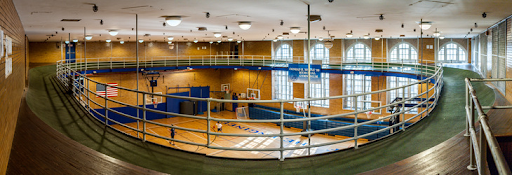Whether it’s an English quiz, an AP World History test, or a Spanish speaking presentation, Brooklyn Tech students are usually juggling multiple assessments each week. In a school as large as Tech, with 6,000 students and a selection of 30 Advanced Placement (AP) courses, creating a testing schedule for Technites is a herculean task, one that increasingly seems ineffective at accomplishing its main goal of alleviating testing day conflicts.
Constant testing is stressful, to say the least. The Association for Supervision and Curriculum Development states that frequent testing significantly contributes to student fatigue. The constant rotation of test preparation, taking exams, and receiving results takes a mental and emotional toll. It also reduces academic engagement and interest in learning.
When school stress is left unmanaged, it can develop into chronic stress which negatively impacts memory, attention, and cognitive functioning, making it harder to learn and retain information. According to The National Library of Medicine, if stress is not managed properly, cortisol levels rise by about 15% on average, increasing health risks like a weakened immune system.
Tech’s current testing schedule is as follows: major classes on Mondays; Math, Social Studies, Languages Other Than English (LOTE), and Health on Tuesdays and Thursdays; Science, Design & Drafting for Production (DDP), Computer Science Principles, and English on Wednesdays and Fridays.
A recent Survey poll found that 78% of respondents felt the current testing schedule did little to remove testing conflicts and stress. The schedule is designed to distribute assessments in a way that is manageable for students, but in practice, it often results in significant challenges.
Subjects that are more frequently tested like Math, LOTE, and Social Studies are scheduled on the same day, creating an overwhelming overlap and diminishing the schedules’ effectiveness.
“I had three tests that were almost all back-to-back,” said Neuroscience major Leia Liang (‘26). “I had an AP Biology exam which was two periods, an AP Language and Composition multiple choice exam, gym, and then a Physics exam. Just knowing that I had three tests scheduled that day made me want to not get out of bed. I was really groggy and irritated all day because I was so on edge about my performance.” Students must also make the difficult decision about which exams to prioritize and which they should dedicate their limited study time to.
“I’ve definitely had to weigh which tests and topics I know more about and which subjects I think will impact my grade more,” Liang explained. “If I’m studying for both AP Biology and Physics, I put more energy into studying for AP Biology because I know it is going to be more significant on my transcript compared to Physics.”
Test preparation must also compete for time with regularly scheduled homework assignments or extracurricular activities. “There is such a huge baseline of homework at this school that it’s not manageable to be tested so frequently,” said Social Science Research major Reuben Sparrow-Blustain (‘26).
For students with particularly demanding extracurriculars, the workload can be unbearable for students like Civil Engineering major Ana Dong (‘26) on the Tech Cheer team. “Right now, it’s basketball season so I have to stay after school for the games which end pretty late,” said Dong. “By the time I get home, there is barely any time for me to study.”
Frequent and coinciding exams can take a toll on students’ mental and physical well-being as multiple tests in a single day often lead to heightened anxiety and exhaustion. The need to switch gears between different subjects leaves students feeling unprepared and overwhelmed, compounding stress that can manifest as fatigue, difficulty concentrating, and decreased motivation.
“Whenever I don’t have an adequate amount of time to prepare for a test I feel really nervous throughout the day,” Liang explained. “I’ll often catch myself during a class where I don’t have an exam in being really jittery because I’m anxious for a test that I know I didn’t prepare enough for.”
“Before [winter] break, there was a day where I had tests back-to-back for four periods,” said Dong. “When I was transitioning from each class, I didn’t even have time to think about how good or bad I did because I had to worry about the next upcoming test.”
Assistant Principal of Guidance Mr. “K” Louis Mansano noted that the testing schedule is formulated with other assistant principals and focuses on when teachers of specific subjects can assign assessments.
“We try to look at when Regents are being offered, when AP’s are being offered, and based on that when we can do study week so that no assessments are given to the kids and then [they] have finals also,” he explained. “For example, in January, we saw study [week], finals, and then Regents. So, the flexibility is not always possible because of the sheer number of examinations that happen in this building.”
With thousands of students taking a wide range of AP classes on top of their mandated core curriculum classes either to challenge themselves, enrich their understanding of a subject, or add a flourish to their
college application, conflicts are bound to happen despite Tech’s efforts to minimize them.
“Unfortunately, with a school with 6,000 kids, it’s not as possible,” said Mr. K. “As much as we try to schedule exams on a different day, we’re going to keep running into issues where the kids are going to have several demanding exams on the same day. The best practice, really, is to take preventative measures in terms of how much students are signing up for prior.”
Sparrow-Blustain believes that a change needs to be made in terms of frequency of exams. “I don’t think that teachers should be able to give weekly tests or quizzes,” he stated. “There needs to be a lot more open discussions [about testing].” Many students would welcome such discussions, and might even bring solutions to the table. “I would like to see a platform where teachers can input when they’re going to assign a test, see how many teachers are already assigning tests on those days, and how many of their students have that teacher,” Liang suggested.
While conversations addressing the testing schedule are essential, it is equally important to provide
students with strategies and resources to manage stress effectively. There are already several ways students can survive testing conflicts at Tech. They can speak to counselors and social workers who are available throughout the day, meet up with Tech’s therapy dog Butters, or join Shared Support, a group that discusses and learns about how to cope with stress.
It is important to remember that, while these resources provide crucial emotional support, they also serve as a reminder that students, no matter how talented or driven, are still kids navigating how to grow up. “Just because we’re a specialized high school doesn’t mean that we’re not still working with children,” remarked Mr. K. “I think that too many times we forget that just because kids are gifted doesn’t mean that they’re not kids still. We should be able to let them have fun.”








































